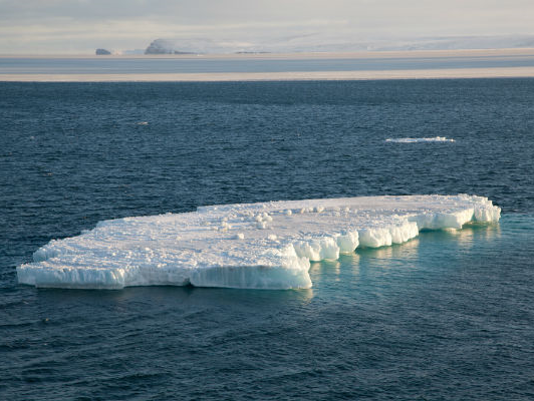All
we've got in this country is idiots and liars
The
apocalyptic tone of heatwave-reporting doesn’t go far enough –
not when the issue is human extinction
The
threat of the destruction of the earth isn’t new, but its speed is.
The last such event took around 60,000 years. Now it’s happening in
real time

4
August, 2018
This
summer, the arctic burned.
Boreal forests, usually caked in ice, were charred. Further south,
from Quebec to Japan,
hundreds of people dropped like scorched flies in the heat, as though
under a giant magnifying glass. Across Europe, the same: deaths,
drought and crop failure.
As heatwaves
multiply in
the future, so will heat-related
deaths:
7,000 a year in the UK alone. Droughts will
be more intense, leading to food shortages.
Often,
when another climate
change threshold
is reached, a weary,
soused contrarian emerges
with exhortations to lighten up and enjoy the sunshine. It would be
mistaken to take such scandal-seeking rhetoric at face value. It is
superfluous: it exhorts people to do what they’re already doing.
And for all its apparent cheeriness, it is a counsel of nihilistic
despair. If you think something can be done, you will be serious and
urgent rather than facetious. The catastrophists are the optimists
here.
To
be fair, heatwave panic is silly season news. Sensationalism, though,
is its own form of euphemism. For all the apocalyptic tone of
heatwave reporting, it doesn’t go far enough. Not when the issue is
human extinction.
The
2016 heatwave destroyed one third of coral in the Great Barrier Reef.
Ocean life is responsible for most
of the oxygen we breathe,
and coral reefs are home to a quarter of all marine life, more
productive than forest or savannah. The extinction of the reefs, a
probability at this point, would sharply
reduce the number of oxygen-producing phytoplankton.
Coupled with the accelerating
acidification of the ocean,
warming is a threat to the air we breathe.
This
is one of many dependencies supporting human life. Consider another
example. Bee populations are recovering
from colony collapse disorder.
But now scientists find that warming is likely to cause
the bees to die off rapidly anyway.
Without their pollination work, 70 per cent of the crops that feed 90
per cent of the planet would fail. The era of cheap food is ending,
as crop yields decline in a hotter planet.
We
are already in the midst of a mass extinction event. The regularity
with which new or threatened extinctions are announced – from
the white
rhinoceros to
the lemur –
is
staggering. The background rate of extinction is 150-200 species a
day. This is “biological
annihilation”.
Mass extinction is not new, but its speed is. The last such event
took around 60,000 years. Now it’s happening in real time.
And
there are accelerators built in to this crisis. The Arctic is already
gone.
By 2040, the ice will have melted for good. That entails the loss of
species, not least of the polar bear. But it also means less
solar radiation deflected,
further warming the planet.
This
is one reason why the crisis is far worse than we think.
Paleoclimatologists have shown that past warming episodes show
that there are mechanisms which magnify
its effects,
not represented in current climate models from the Intergovernmental
Panel on Climate Change to the Paris Accords. The agreed “carbon
budget”, even if anyone was adhering to it, will not keep
temperatures within two degrees of the pre-industrial average.
The
biggest obstacle to comprehending this is not the climate denial
industry. It is what the sociologist Stanley Cohen called
“implicatory denial”: recognising a problem but denying its
consequences. This is far more insidious, particularly at the level
of policymaking. The denial of politicians is easy to explain. An
attack on fossil capitalism would be hugely destabilising for the
world economy. As Andreas Malm has pointed out, it would destroy the
worth of massive investments in plants, infrastructures, supply
chains and dependent industries. It would burn a “planet of value”.
The transition would require a collective mobilisation tantamount to
world war. Few politicians want that.
What
about everyday denial? What about the cheerfulness with which we just
get on with things, and the resigned despair that implies? Certainly,
there is a pervasive sense of political powerlessness. The work of
the psychoanalyst Renee Lertzman suggests that, in addition to this,
behind such resignation often lurks a thwarted mourning for worlds
that have already been lost. Worlds of childhood memory,
independence, adventure, possibility. Worlds perhaps bigger than
those we find ourselves in. It’s a mourning stalled by ambivalence
and guilt. This is one reason why lectures on consumerism, as if the
problem was popular appetite, tend to be counterproductive.
But
this also means that resignation is not the whole story. There is a
submerged yearning here which can become politically effective. For
that we need more than catastrophist foresight. We need something to
yearn for. We need to answer a question that we barely even know how
to ask: what will we do with ourselves as a species if we choose not
to go extinct?
No comments:
Post a Comment
Note: only a member of this blog may post a comment.